Cats do not necessarily need grain-free food; it depends on their dietary requirements. Many cat owners opt for grain-free food due to potential allergies, but it’s important to consult with a veterinarian to determine what diet is best for your cat’s health.
While some cats may thrive on grain-free diets, others may not require it. Understanding your cat’s nutritional needs is key in providing them with a balanced and healthy diet. By considering factors such as age, activity level, and any existing health conditions, you can make an informed decision on whether grain-free food is the right choice for your feline companion.
In the end, prioritizing your cat’s well-being is the most important aspect of their diet.
The Importance Of Cat Diet
|
Cats need a balanced diet to stay healthy and energetic. Grain-free food is a popular choice for many cat owners nowadays. However, not all cats require grain-free diets. It’s essential to understand your cat’s specific nutritional needs before deciding on their diet. Consulting with a veterinarian can help you determine the best food for your cat. The quality of the ingredients in your cat’s food is more important than whether it is grain-free or not. Protein content is crucial for a cat’s diet to support their muscle health. |

Debunking The Grain Free Myth
Grain-free cat food isn’t essential for feline health. Cats can digest grains adequately and benefit from their nutritional value. Pet owners should focus on providing balanced diets, rather than solely eliminating grains. Some misconceptions suggest that grains cause allergies in cats, but this is rarely the case.
Grains in cat food can contribute valuable nutrients like fiber and carbohydrates. It’s vital to consult with a veterinarian before making dietary changes for your feline friend to ensure they receive proper nutrition. Ultimately, whether to feed grain-free food depends on the individual cat’s needs and health requirements.
Understanding Grain-Free Food
Cats can benefit from grain-free food as it aligns with their meat-based diet. Grain-free food can support digestive health and reduce the risk of allergies in cats. When looking for grain-free cat food, it’s important to seek out high-quality protein sources, such as chicken, turkey, or fish. These sources provide the necessary amino acids for feline health. Additionally, avoid grain-free cat foods that contain fillers and artificial additives. By choosing grain-free options with nutrient-dense ingredients, such as healthy fats and antioxidants, you can provide your cat with a balanced diet.
Common Health Issues In Cats
Cats can face various health issues, and two common concerns are obesity and allergies and sensitivities. Obesity in cats can lead to a range of health problems such as diabetes, joint pain, and heart disease. It is important to provide cats with a balanced and appropriate diet to prevent weight gain. Grain-free food can be a good option for cats with allergies or sensitivities, as it eliminates common allergens like wheat and corn. Cats can develop sensitivities to grains or other ingredients, causing digestive issues and skin problems. By feeding them grain-free food, you can help alleviate these problems and improve your cat’s overall well-being.
When feeding your cat, it is crucial to consult with a veterinarian to ensure that you are providing the right nutrition for your cat’s specific needs. Regular exercise and portion control are also essential to prevent obesity and maintain a healthy weight. By addressing these dietary concerns and keeping an eye out for potential allergies or sensitivities, you can help your cat live a healthier and happier life.
Transitioning Your Cat To Grain Free Food
Transitioning your cat to grain-free food should be done slowly to prevent any digestive issues. Cats can be sensitive to sudden dietary changes, so a gradual diet change process is recommended. Start by mixing a small amount of the new grain-free food with your cat’s current food. Monitor your cat’s response to this mixture, looking for any signs of stomach upset or reluctance to eat. If your cat tolerates the mixture well, gradually increase the proportion of the new grain-free food over several days or weeks. Be sure to monitor your cat’s weight and overall health during this transition period and consult your veterinarian if you have any concerns. With a gradual and monitored approach, you can successfully transition your cat to a grain-free diet.
Frequently Asked Questions For Do Cats Need Grain-Free Food
Should Cats Have A Grain Free Diet?
Yes, cats can thrive on a grain-free diet due to their carnivorous nature and potential sensitivities to grains. This preference aligns with their natural diet. However, it’s essential to ensure the diet is nutritionally balanced and meets their dietary needs.
What Is The Healthiest Cat Food For Indoor Cats?
The healthiest cat food for indoor cats is a high-quality, grain-free diet rich in protein and essential nutrients. Prioritize brands like Royal Canin, Hill’s Science Diet, or Blue Buffalo for optimal feline health.
What Ingredients Should I Avoid In Cat Food?
Avoid cat foods with artificial colors, preservatives, by-products, corn, and wheat, as these can be harmful to cats.
Is Free Feeding Better For Cats?
Free feeding is not recommended for cats. Scheduled meals help control portions and promote healthy eating habits. Additionally, free feeding can lead to obesity and other health issues in cats. It’s best to follow a feeding schedule for your cat’s well-being.
Q: Is Grain-Free Food Beneficial For Cats?
A: Grain-free food can be beneficial for cats as it reduces the risk of allergies and promotes digestion.
Conclusion
While grain-free food may not be imperative for all cats, it can address specific dietary needs. It’s crucial to consider your cat’s health requirements and consult with a veterinarian. Ultimately, providing a balanced diet with high-quality ingredients is key to ensuring your feline friend’s well-being and longevity.
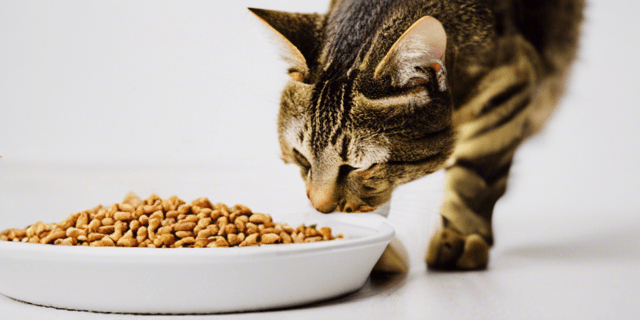

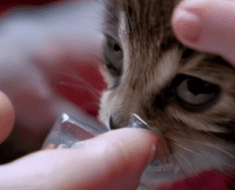
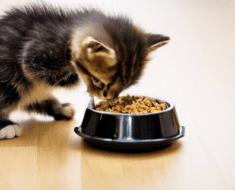
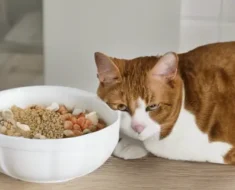
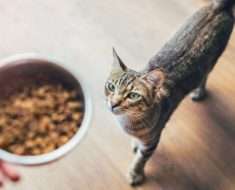
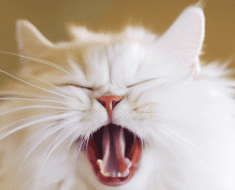
One Comment